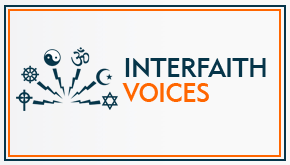Shankar Vedantam, the host of the radio show and podcast Hidden Brain, discusses his new book, Useful Delusions, co-authored with Bill Mesler. He examines how self-deception helps us not only succeed at things like parenting but also serves as a survival tool. He examines the role self-deception plays in religious belief and takes the “New Atheists” to task for overlooking religion’s usefulness to society. Then, political scientist and researcher Dr. Melissa Deckman of the Public Religion Research Institute describes the findings of a longitudinal study on beliefs and attitudes about QAnon believers, which includes 1 in 5 Republicans.
“Our Brains Are Not in the Truth Business”
Shankar Vedantam defines a “useful delusion” as an untruth we allow ourselves to believe so we can get through the day or accomplish some greater goal. These delusions help make us better parents, better spouses, better citizens, and when they find their way into religion, better believers.
“Uncomfortable with Uncertainty”
The human mind, Vedantam continues, likes order and meaning. This helps explain why some people latch onto conspiracy theories, the belief that the 2020 election was “illegitimate” and that the current pandemic is not real. He describes some means of gently dismantling these delusions.
“Conventional Wisdom Was Wrong: In 2021 More Americans Embrace QAnon beliefs”
Dr. Melissa Deckman, CEO of the Public Religion Research Institute, describes the main findings of their research survey work examining attitudes, affiliations, and beliefs of QAnon supporters. Chief among the findings is that QAnon has found a home in the Republican party and adherents and supporters continue to believe in former President Trump as a salvation figure. QAnon voters are more entrenched in their beliefs questioning the legitimacy of the last presidential election and Deckman explains the implications and highlights the unique role that political leaders and religious organizations have in shaping norms.



